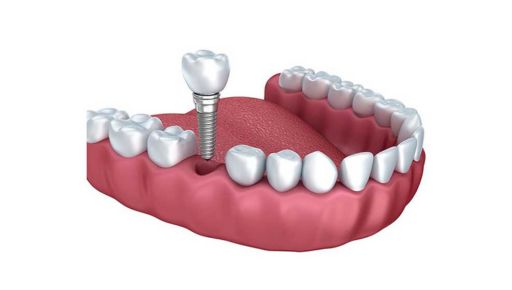
Dental implant surgery is a transformative procedure for diabetic patients seeking to restore their smiles. Effective post-procedure care is crucial for diabetic patients who have received dental implants in Pleasantville. Dental implants offer a transformative solution for diabetic patients seeking to restore their smiles. However, proper post-procedure care is vital to ensure optimal healing, prevent complications, and manage blood sugar levels. Diabetic patients require personalized guidance to navigate the recovery process, minimize potential risks, and guarantee successful implant integration. Skilled dental professionals provide tailored instructions and support, empowering patients to achieve optimal oral health and overall well-being.
What Are Dental Implants?
Dental implants are artificial tooth roots surgically inserted into the jawbone to support prosthetic teeth, restoring functionality and aesthetics. Comprising a titanium post, abutment, and crown, implants mimic natural tooth structure. They offer a durable, long-lasting solution for missing teeth, promoting improved chewing, speech, and confidence. Dental implants can replace single or multiple teeth, supporting fixed bridges, dentures, or individual crowns. Successful integration relies on sufficient bone density, healthy gums, and precise placement by a skilled dentist or oral surgeon. With proper care, dental implants can provide a lifetime of enhanced oral function and smile enhancement.
What Is The Impact of Diabetes on Dental Implant Outcome?
Diabetes significantly impacts dental implant outcomes, affecting osseointegration, healing, and overall success.
- Uncontrolled blood sugar levels compromise wound healing, impairing the implant-bone interface. Diabetes-related
- complications include increased infection risk, delayed healing, implant failure, and peri-implantitis.
- Additionally, diabetes-associated conditions like periodontal disease, neuropathy, and vascular changes further compromise implant longevity. Tight blood glucose control, meticulous oral hygiene, and collaborative care between dental professionals and healthcare providers are crucial for optimizing implant success rates in diabetic patients.
- Studies show that well-managed diabetes yields implant success rates comparable to non-diabetic individuals, emphasizing the importance of multidisciplinary care.
| Diabetes is a chronic metabolic disorder characterized by elevated blood sugar levels due to impaired insulin production, insulin resistance, or both, disrupting glucose regulation and affecting various bodily systems. |
What Does Post-Procedure Care For Diabetic Patients With Dental Implants Involve?
Post-procedure care for diabetic patients with dental implants involves comprehensive measures to ensure optimal healing, minimize complications, and manage blood sugar levels.
Immediate Post-Procedure (0-72 hours)
- Monitoring for bleeding, swelling, or pain: Patients should contact their dentist if these symptoms persist or worsen.
- Rest and hydration: Resting and drinking plenty of water helps the body recover.
- Soft-food diet: A soft-food diet minimizes discomfort and stress on the implant.
- Medication adherence: Taking prescribed antibiotics and pain medications as directed is crucial.
- Blood glucose monitoring: Keeping blood sugar levels within target ranges is vital.
Short-Term Care (1-2 weeks)
- Gentle oral hygiene: Brushing and flossing carefully around implants.
- Saltwater rinses: Reducing swelling and promoting healing.
- Avoiding strenuous activities: Minimizing stress on the implant.
- Follow-up appointments: Attending scheduled dental check-ups.
Long-Term Care
- Regular dental cleanings: Professional cleanings every 3-6 months.
- Meticulous oral hygiene: Continuous proper brushing, flossing, and interdental cleaning.
- Balanced diet: Nutrient-rich foods support healing and overall health.
- Blood sugar control: Maintaining stable glucose levels.
- Smoking cessation: Quitting smoking to prevent implant failure.
- Regular implant checks: Monitoring for peri-implantitis or implant failure.
Wrapping up
Post-procedure care for diabetic patients with dental implants demands meticulous attention to optimize healing, minimize complications, and manage blood sugar levels. A multidisciplinary approach, combining dental expertise with medical oversight, ensures successful implant integration. Immediate, short-term, and long-term measures—such as medication adherence, gentle oral hygiene, balanced nutrition, and regular monitoring—foster a supportive environment for implant longevity. Collaborative care, patient education, and vigilant glucose control enable diabetic individuals to achieve outcomes comparable to non-diabetic patients. By embracing comprehensive post-procedure care, diabetic patients can confidently restore their smiles, enhancing oral function, aesthetics, and overall well-being.






